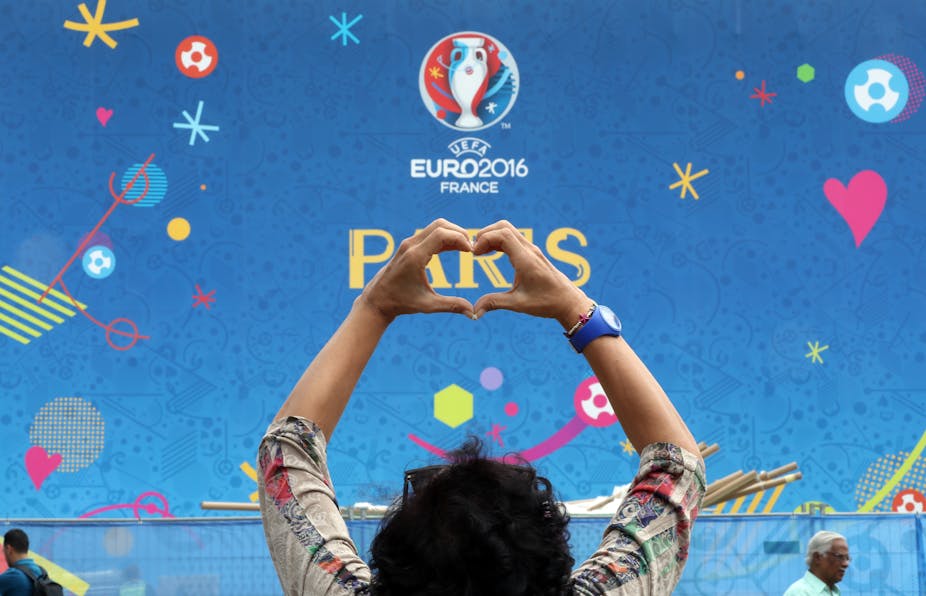The starting whistle will blow on the UEFA Euro 2016 football tournament on Friday June 10 as hosts France take on Romania in the opening game. It is the beginning of a month of European football action that happens every four years and has produced unexpected results: some less-fancied teams – including Denmark in 1992 and Greece in 2004 – have raised the winners’ trophy.
Aside from the fact that this year’s tournament coincides with the British EU referendum and social upheaval in France, one important point of interest is a change in the format. For the first time, 24 countries will participate.
The tournament began in 1960, and was also hosted by France. In those days there were only four participating teams – France, Czechoslovakia, Yugoslavia and the Soviet Union, who were the winners. The tournament was extended to eight teams in 1980 and 16 in 1996.
Like previous tournaments Euro 2016 will involve a group stage with four teams per group – the difference is that there will now be six groups instead of four. The best 16 teams will go through to three rounds of knockout stages ahead of the final.

Why the change?
The rationale behind expanding the tournament was to encourage European football to develop by providing better access for smaller countries to UEFA main competitions. This has certainly been accomplished, with teams including Wales, Northern Ireland, Iceland and Albania preparing to do battle.
Yet, at first glance, having more teams may seem detrimental to making the Euro finals a tough competition. You would expect teams ranked 17 to 24 to be weaker than teams 1 to 16. Some results in the qualifying round suggest this is not necessarily the case, however. Iceland, ranked 38, forced the Netherlands – ranked third seeds – into a playoff they lost to the Czechs.
Northern Ireland (39) and Wales (34) were able to do the same to Greece (7) and Bosnia and Herzegovina (9) respectively. World Cup winners Germany struggled to qualify against the Republic of Ireland (19) and Poland (28), and won only by one goal in their two games against Scotland (31).

More countries in contention also means fewer meaningless games, though again this might not be immediately apparent. More teams were in with a chance of qualifying until late in the day, scotching fears from even the former UEFA president Michel Platini that the qualifiers would be less interesting.
Reducing meaningless games is something UEFA also intends to take beyond Euro 2016. It will cut the number of friendlies from 2018 by replacing most of them with a new competition called the Nations League. It will consist of four hierarchical leagues with the 12 best teams in League A, teams 13 to 24 in League B and so on. This will offer an additional opportunity for smaller countries to qualify for Euro 2020, since the winning country from each league will qualify for the tournament. There will also be promotion and relegation as in club football.

That’s for the future, however. In the current tournament my native France are the favourites to win, ahead of Germany and Spain. They are not only favoured by bookmakers but also by the investment bank Goldman Sachs, which has been crunching the probabilities. If France do win, they will equal the other two countries by lifting the title for the third time – they last won at Euro 2000, defeating Italy.
Either way, UEFA has set the scene for a more thrilling tournament than the previous ones – not least because the four most successful third-placed teams will be going through to the knockout stages. That should help ensure a more intense and competitive tournament, that keeps fans gripped through June and early July.

